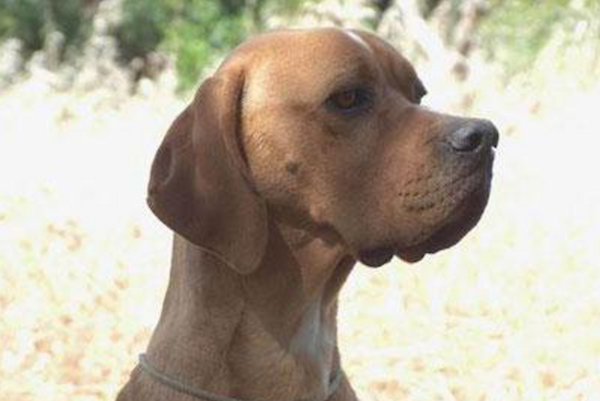
For over a thousand years, the Portuguese Pointer has always had the same square head, marked stop and compact look, but this is not a new look to students of purebred dogs. The dog’s head is, in fact, remarkably similar to that of the Pointer’s (English), and for good reason: Wine production brought many English families to the Oporto region in the 18th century, and when they visited or returned home, they took with them some of the dogs also known as the Perdigueiro (derived from “perdigon,” the Portuguese word for “partridge”). As the Portuguese were a great seafaring people, it’s highly likely that the breed influenced the development of a number of European gun dogs even before then.
While the Pointer’s history is said to include the Spanish Pointer, author, Craig Koshyk, points out that many 18th and 19th century sources seemed to refer to any dog from the Iberian Peninsula (or even southern France, for that matter) as “Spanish Pointers.” One look at the Portuguese Pointer’s head suggests that its role in the Pointer’s ancestry was significant. Koshyk goes on to mention that Barnabas Simond writes in his 1776 book, A Treatise on Field Diversions by a Gentleman of Suffolk, that the English Pointer “…is acknowledged to be a native of Spain or Portugal; as many were and yet are brought to us from both kingdoms.”
When hard times fell on Portugal, the breed suffered. A serious decline in numbers by the early 20th century nearly lead to its extinction, and had it not been for dedicated breeders in the 1930s who sought to restore the Portuguese Pointer, we might now be discussing an extinct breed. A Portuguese pedigree book was established in 1932, and a breed standard came in 1938.
The Portuguese Pointer was recognized by the United Kennel Club in 1996, and is currently an FSS breed with the AKC. As recently as 2011, it was thought that a mere 200 Pointers existed in the United States. The breed stands to increase in popularity when word spreads of its excellence as a hunter that can work in harsh terrain and any kind of weather. Because of this superb hunting ability, Portuguese hunters nicknamed the dog, “the National.” Described as a bit softer than, say, a German Shorthaired Pointer, the breed is inclined to hunt a bit closer, and has a friendliness and biddability that are hallmarks of the breed.
Image of Portuguese Pointer by @panthercreeklab appears with the kind permission of the AKC
